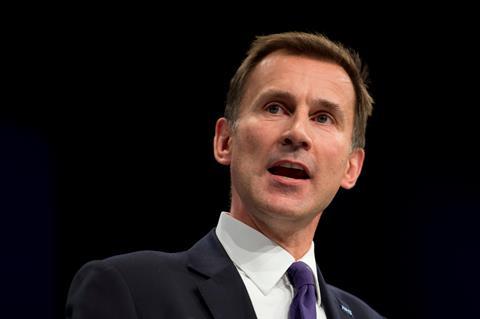Hospitals are not learning from their mistakes in part because of time-consuming clinical negligence litigation, former health secretary Jeremy Hunt MP has claimed.
Hunt, now the chair of the House of Commons health and social care committee, said England and Wales should follow the likes of Sweden by taking negligence out of the equation altogether and paying compensation much sooner after the harm has been caused.
Speaking during a webinar hosted by national firm Irwin Mitchell last week, Hunt said the current adversarial system potentially causes serious harm to hundreds of babies every year because necessary changes are taking years to be implemented.
Hunt said: ‘[In Sweden] When a child is born severely disabled they are able to access compensation without having to get a court to agree there was clinical negligence… You get that compensation as long as the clinicians agree there was a mistake made [but] they don’t have to accept there was clinical negligence.’

Hunt said families were understandably desperate to get compensation because of the huge financial burden of bringing up a severely disabled child, but they are told the only way to get that compensation is by proving clinical negligence, which necessitates lawyers’ involvement. ‘For the most difficult cases it can take easily five years – that is five years when people are fighting in the courts rather than using the knowledge from that.’
Hunt’s committee has already urged the government to end the adversarial system. There continues to be speculation that the government is preparing to reform the sector.
While ministers consider legislating to encourage more cooperation and fewer cases coming to court, it would appear that the lawyers involved in clinical negligence cases are already collaborating more since the pandemic and the introduction of a new protocol for handling cases.
Jasmine Armstrong, partner with defendant firm Weightmans, told the webinar there had been a ‘culture shift’ with both parties sharing a common goal to secure earlier resolution. She added that one way of extending this could be for claimant and defendant lawyers to consider jointly instructing one expert.
‘There is a strong cohort of experts that we tend to instruct and they are well regarded and could be used for joint instruction whether dealing with liability or quantum,’ said Armstrong. ‘There is an opportunity to share evidence early. If one party has a really robust independent expert report or a really strong witness statement there would be an advantage to disclosing it early.’



























11 Readers' comments